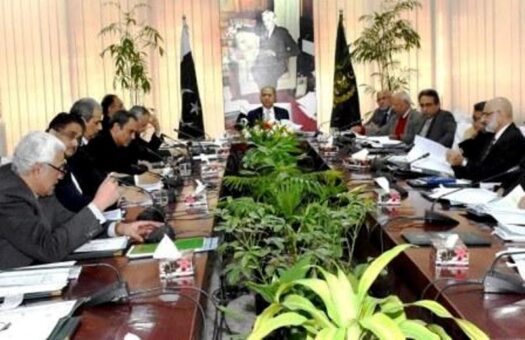ISLAMABAD: State Bank of Pakistan (SBP) has developed regulatory framework for facilitation of cross border B2C e-commerce.
However, this will be adopted after integration with the e-Commerce to be developed by Federal Board of Revenue (FBR) in WeBOC (Web Based One Customs).
The officials of SBP shared this information at the second meeting of National e-Commerce Council, chaired by Abdul Razak Dawood, Advisor to the Prime Minister on Commerce and Investment on Thursday.
All of the nominated members of the Council, including State Bank of Pakistan, Ministry of IT & Telecom, Federal Board of Revenue, Securities and Exchange Commission of Pakistan, National Information Technology Board, Provincial Departments of Industries and Commerce, Provincial Revenue Authorities, Pakistan Post, Federal and Provincial Consumer Rights Commission/Councils, Telecom companies, online marketplaces, Fintech sector representatives, Freelancers, Banking sector and Logistics companies attended the meeting.
The Advisor briefed the participants about the progress achieved in the past months on the e-Commerce Policy, since its approval on October 01, 2019.
He appreciated the coordinated efforts of public and private sector for the effective implementation of the policy.
Talking to the participants, Razak Dawood underlined that the trend of e-commerce has increased rapidly in the recent years with the development and easy accessibility of the internet.
He added that, due to the covid-19 pandemic, the importance of e-Commerce has increased manifolds, making it an extremely vital sector for the economy.
He stressed the importance of directing the resources towards digital adoption and connecting the SMEs to e-platforms across the globe, while exploring new market access opportunities for them.
Punjab and Khyber Pakhtunkhwa Revenue Authorities apprised the participants of the incentives being announced for Digital and e-Commerce sector in the provincial budgets to support these sectors during these challenging circumstances.
Representatives from Consumer Protection Councils of Punjab and Lahore and from Consumer Rights Commission of Pakistan informed that, in line with the directions of the e-Commerce Policy, Federal and Provincial Consumer Acts are being amended to include the subject of e-Commerce and the disputes arising from this sector.
They added that webinars are being planned to educate academia and train the judicial officers on the subject of consumer protection.
SECP shared with the participants that several new initiatives are being planned to promote e-Commerce, including introduction of a separate sectoral classification of e-Commerce.
So far 152 businesses have registered on their portal, which has reduced the time of a company registration to 4 hours.
Secretary Commerce told the participants that Ministry of Commerce is continuously engaged with its foreign trade missions for promoting Pakistani trade and exploring new markets for its exporters.
In this regard, a new development is registration of Pakistani sellers with Amazon. Initially, a list of 38 exporters has been communicated to Amazon, which is limited to Surgical & Sports Goods and Home Textiles Sectors but will be expanded to other sectors in near future, after a successful trial of these shortlisted companies.
A video message from the Director General-WTO, appreciating Pakistan’s e-Commerce Policy being a step in the right direction, was also shared with the participants.




